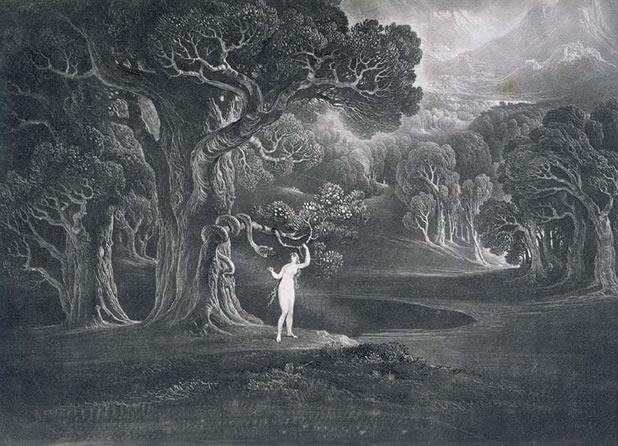The theological roots of our ecological crisis
Lynn White's 1967 essay, The Historical Roots of Our Ecological Crisis, 155 Science 1203 (1967), is one of the most enduring and influential articles on environmental policy. It deserves a prominent place in any list purporting to describe the canon of environmental law. Jurisdynamics could justifiably devote a reading list -- along the lines of J.B. Ruhl's list on complexity theory and the law or my list on statutory interpretation -- solely to works that develop, elaborate, or contest White's thesis.
White, in essence, argued that the dominion ethic expressed in Genesis 1:28 gave rise to an exploitative view of nature:
And God blessed them, and God said to them, "Be fruitful and multiply, and fill the earth and subdue it; and have dominion over the fish of the sea and over the birds of the air and over every living thing that moves upon the earth."This view fails to give Genesis anything approaching a complete hearing. The phenomenally complex -- and contestable -- opening chapters of the Hebrew Bible remain almost entirely mysterious, even in a culture that purports to know and follow the Judeo-Christian tradition.
At a minimum, there are three distinct ethics expressed in Genesis. I've devoted an entire paper, Of Agriculture's First Disobedience and Its Fruit, to isolating and elaborating three distinct views of nature in Genesis -- dominion, stewardship, and survival:
In the beginning God created the heaven and the earth. And as sin came into the world, so too did the possibility and the promise of redemption. The Book of Genesis' accounts of Creation supply three distinct "ethics" that inform agriculture as the profoundest point of contact between humanity and the natural world. The combatants in the debate between conventional and alternative agriculture have co-opted the dominion ethic of Genesis' first account of Creation and the stewardship ethic of the Scriptures' second account. But these intrinsically romantic accounts overlook a third ethic, the survival ethic that God pronounces upon expelling Adam and Eve from Eden.This paper (now available via SSRN), along with Webs of Life: Biodiversity Conservation as a Species of Information Policy, will serve as the impetus for the next few posts in this series. I propose now to confront, directly and on its own terms, what is perhaps the world's most famous and most influential story of origins: Genesis.
Next in this series -- Genesis: A Thrice-Told Tale.













0 Comments:
Post a Comment
<< Home